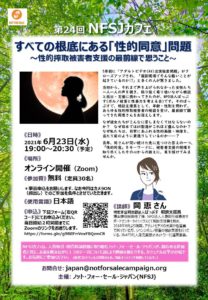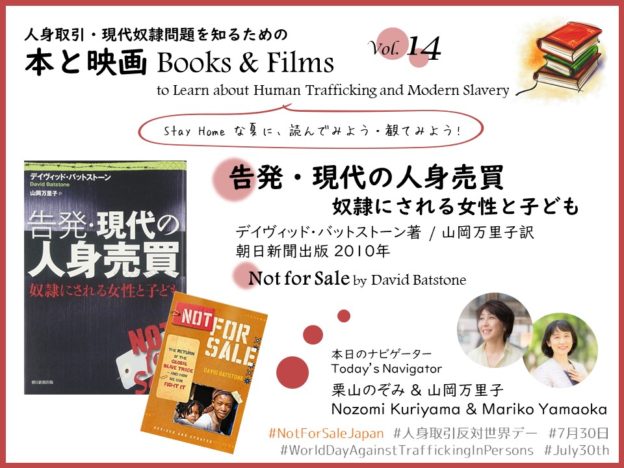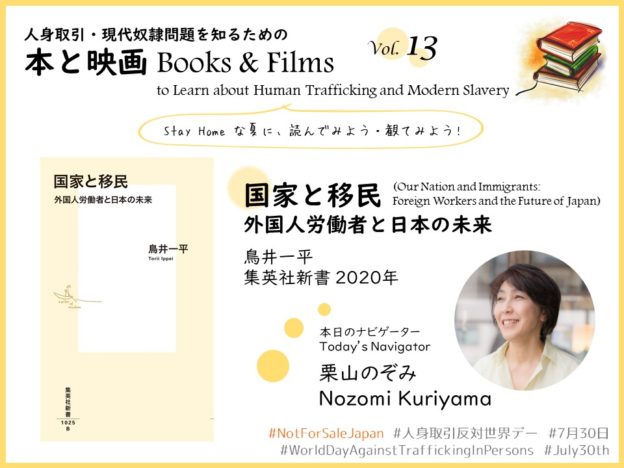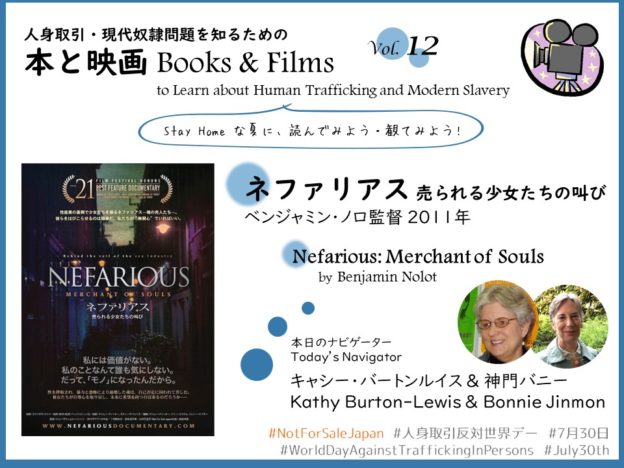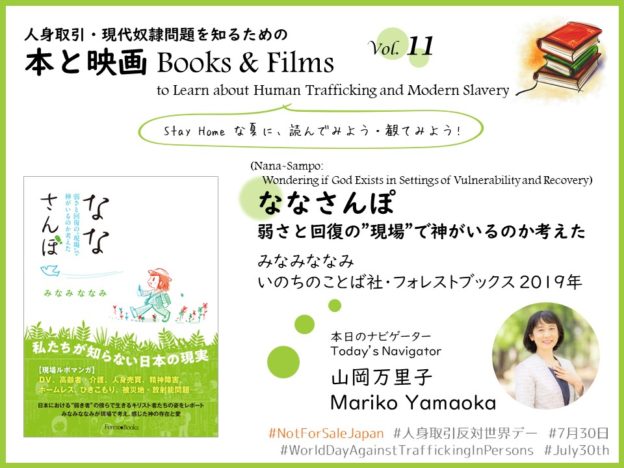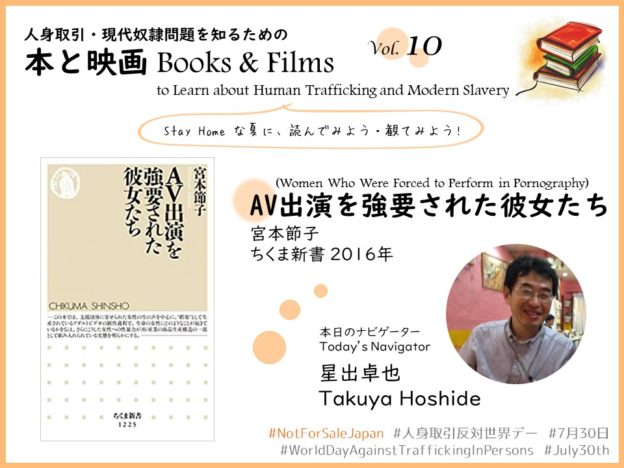Today is the last day of the campaign! Let us first apologize that this is a long (but we think, worthwhile) post.
The book we review today is literally the starting point of NFSJ: “Not For Sale: The Return of the Global Slave Trade—And How We Can Fight It” written by David Batstone, the co-founder and president of anti-human trafficking NGO, Not For Sale. When Mariko Yamaoka, a published translator, was searching for a new book to translate, she found this one. It changed her life, as well as the lives of staff now volunteering for NFSJ! (Read the background story of how Yamaoka founded NFSJ: http://notforsalejapan.org/en/wearenfsj/201807/349)
Looking back on the decade since the publication of this book, the assistant director of NFSJ, Nozomi Kuriyama, interviewed director Mariko Yamaoka.
(The outline of the book)
The author Batstone, after reading a newspaper article, learned that his favorite Indian restaurant in his neighborhood was actually a hub of trafficking slaves from India to the US. Curious about the reality of human trafficking, he set off on a tour to see for himself and report what is happening in Asia, Africa, Eastern Europe, and the United States. He not only depicts the cruelty and misery faced by trafficking victims, but also the rescuers who save victims with the conviction that “human beings are not for sale”. He also describes survivors who regain their self-respect and dignity to be able to say, “I am not for sale.” (The Japanese edition is now out of print. However, most libraries have copies available, and you can buy used books through sites like Amazon.)
===
Kuriyama (K): It has been 10 years since the Japanese translation of “Not For Sale” was published. Plus, next year 2021 will mark the 10th anniversary of NFSJ. So, what do you think is the biggest change during the past decade?
Yamaoka (Y): The biggest change for myself was the increase in opportunities to go out and meet people. I have gotten used to speaking in public through a number of lecture opportunities. Also, through activities of NFSJ and JNATIP (Japan Network Against Trafficking In Persons), I have had many opportunities to research efforts made by governments including our own and the United Nations, through which I came to realize how the national laws and UN conventions are closely related to our daily lives. So that was another big discovery for me.
K: There must be certain changes you’ve made because of your findings.
Y: Yes, especially when working with SSRC (Citizens’ Network to Build a Sustainable Society through Responsible Consumption), I learned a lot about environmental and animal rights issues, and came to understand that all these social issues are related to each other. I had to change my lifestyle in what I eat and wear, starting with what I buy.
K: Our society has changed a lot too.
Y: Yes. After the book was published in 2010, there have been many historic events: rise of the Islamic State; huge influx of refugees into Europe; Rohingya refugees from Myanmar; huge northbound immigration from South and Central America; acceleration of climate change; and human rights issues in China. And in Japan, the Great East Japan Earthquake, exposures of issues like AV forced appearance, TITP labor exploitation, children’s poverty issues, and now the turmoil of COVID-19… As society has become more vulnerable, the problem of human trafficking has worsened more than what this book described.
On the other hand, the issue of human trafficking has been highlighted more during the last decade than before. Even in Japan, I feel that awareness has been raised. I hope NFSJ’s activities have contributed to this, even partially. I don’t have tangible evidence, though.
K: Although there are no Japanese examples in this book, are there any episodes in it that you think are relevant to the reality in Japan?
Y: In Chapter 1 (South East Asia) and Chapter 4 (Eastern Europe), there are some scenes that women are tricked and brought to brothels in spite of their protests, and are victimized with violence and threats. These remind me of the issue of forced appearance in the pornography industry in Japan: the women are coerced to act in porn videos through deceit and threatened even if they resist. Also in Chapter 2, bonded laborers in India are featured and although the scheme is a bit different, they remind me of the slave labor of foreign technical intern trainees and students from abroad working in Japan.
K: For this year’s NFSJ campaign, our intention is to motivate those who read the book and film reviews to make some changes someday, however small. Is there anything you want to tell the readers as one who was motivated by the book “Not For Sale” and made a change yourself?
Y: In Chapter 4 of the book, there is a story of a woman who was trafficked from Eastern Europe to Italy. Towards the end of the story, when she was at a loss standing in front of a bakery, the woman shop owner came out, approached her and introduced her to a support facility, which led to her rescue. This baker was just doing her own business as usual. But she knew that there are victims who suffer from trafficking, and also knew there are organizations that support such people. That was why the baker could reach out to the trafficked woman with no hesitation.
That is exactly what NFSJ aims to do as we try to raise awareness of the issue among as many people as possible. The first step is to know the issue. Then, even if you don’t act right away, we hope you remain concerned. From there, you can either research more, let people know about it in your own way, volunteer for some organization, start up your own project, or seek to make improvements within your own company’s business. It can be anything. We just hope this movement of abolishing human trafficking will spread in various ways that suit each person.
(Nozomi Kuriyama, Mariko Yamaoka)
(Written by David Batstone in 2007, Revised Edition in 2010, by Harper Collins, 304 pages, $13.59 https://www.harpercollins.com/products/not-for-sale-david-batstone?variant=32206392360994 )
This is the end of our campaign. Thank you for reading the posts!

